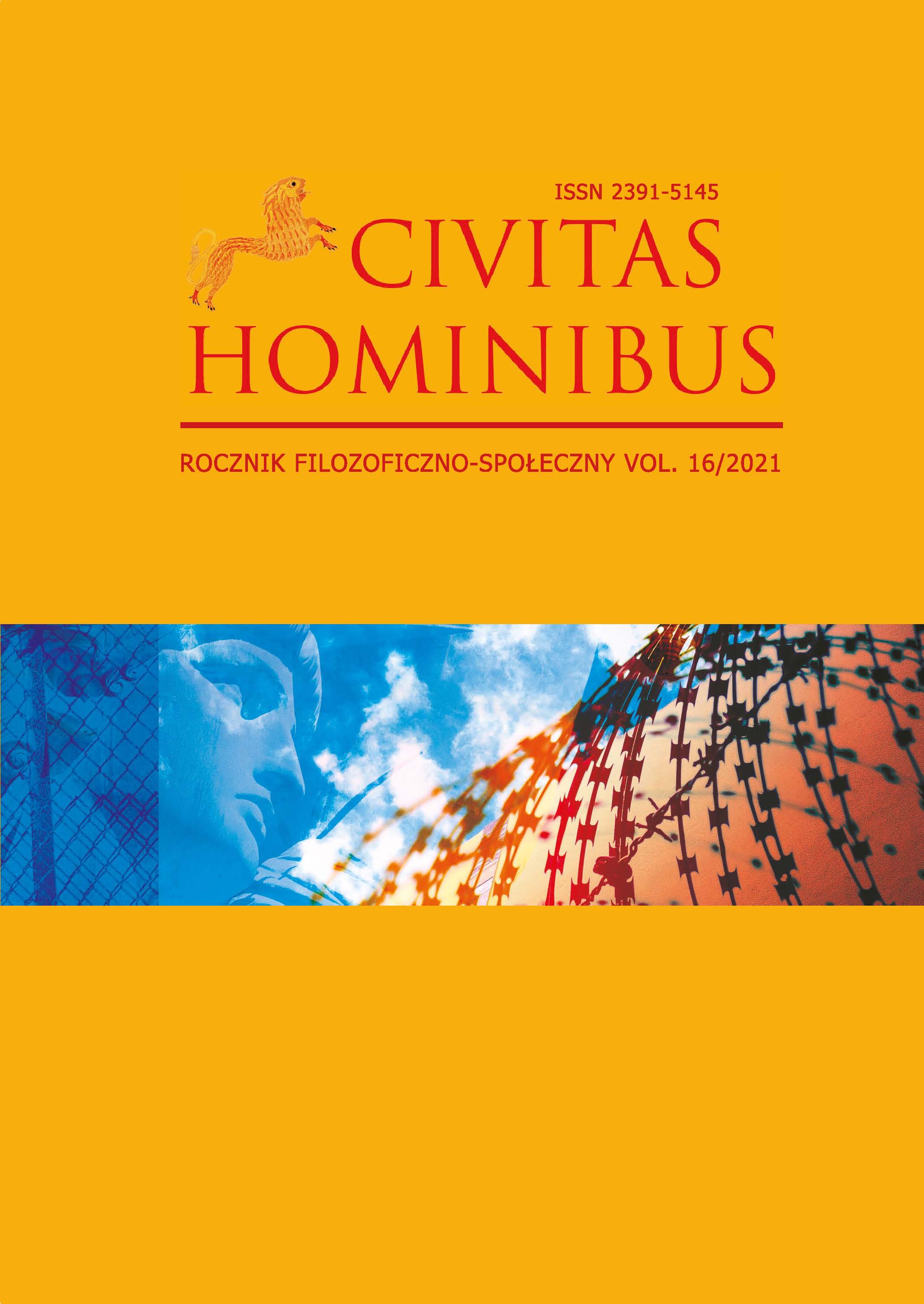Prawa człowieka i SARS-CoV-2 – uwagi o „niebezpieczeństwie publicznym zagrażającym życiu narodu”
DOI:
https://doi.org/10.25312/2391-5145.16/2021_06jpSłowa kluczowe:
prawa człowieka, Europejska Konwencja Praw Człowieka, niebezpieczeństwo publiczne, derogacja praw człowieka, SARS-CoV-2, zagrożenie życia naroduAbstrakt
Przedmiotem artykułu są zagadnienia związane z derogacją międzynarodowych zobowiązań państw płynących z międzynarodowej ochrony praw człowieka. Mimo iż klauzule derogacyjne znajdują się w treści wielu traktatów chroniących prawa człowieka, ich stosowanie jest postrzegane w kategoriach wyjątku, co pociąga za sobą rygorystyczną ocenę ich legalności. Powszechnie przyjmuje się, że derogacja zobowiązań prawnoczłowieczych jest dopuszczalna tylko w wyjątkowych sytuacjach, określanych zazwyczaj jako „wojna lub inne niebezpieczeństwo publiczne zagrażające życiu narodu”. Artykuł jest próbą odpowiedzi na pytanie, czy pandemia COVID-19 może być uznana za taką okoliczność, a co za tym idzie – czy może stanowić uzasadnienie dla środków podejmowanych przez państwa w celu zwalczania koronawirusa.
Pobrania
Bibliografia
Abdülsamet Yaman v. Turkey, Application no. 32446/96, ECtHR Judgment of 2 November 2004.
Aksoy v. Turkey, Application no. 21987/93, ECtHR Judgment of 18 December 1996.
Alparslan Altan v. Turkey, Application no. 12778/17, ECtHR Judgment of 16 April 2019.
Brannigan and McBride v. the United Kingdom, Applications no. 14553/89 and 14554/89, ECtHR Judgment of 26 May 1993.
Brogan and Others v. the United Kingdom, Application no. 11209/84, 11234/84, 11266/84, 11386/85, ECtHR Judgment of 29 November 1988.
Committee of Ministers of Council of Europe Reply to the Parliamentary Assembly of Council of Europe Recommendation np. 2125 (2018). Cyprus v. Turkey, Application no. 8007/77, European Commission on Human Rights Report, 1983. Denmark, Norway, Sweden and the Netherlands v. Greece (the “Greek case”), European Commission on Human Rights Report, 1969.
Dzehtsiarou, K., COVID-19 and the European Convention on Human Rights, “The Strasbourg Observers”, 27 March 2020.
Georgia v. Russia (II), Application no. 38263/08, ECtHR Grand Chamber Judgment of 21 January 2021.
Greece v. United Kingdom, Application no. 176/56, “European Commission on Human Rights Report”, 1958 § 81.
Greene, A., States Should Declare a State of Emergency Using Article 15 ECHR to Confront the Coronavirus Pandemic, “The Strasbourg Observers”, 1 April 2020.
Hassan v. the United Kingdom, Application no. 29750/09, ECtHR Grand Chamber Judgment of 16 September 2014.
Ireland v. the United Kingdom, Application no. 5310/71, ECtHR Judgment of 18 January 1978.
Lawless v. Ireland (no.3), Application no. 332/57, ECtHR Judgment of 1 July 1961.
Marshall v. the United Kingdom, Application no. 41571/98, ECtHR Decision of 10 July 2001.
Mehmet Hasan Altan v. Turkey, Application no. 13237/17, ECtHR Judgment of 10 March 2018.
Molloy S., Covid-19 and Derogations Before the European Court of Human Rights, VerfBlog, 2020/4/10, https://verfassungsblog.de/covid-19-and-derogations-before-the-european-courtof-human-rights/, DOI: 10.17176/20200410-153051-0.
Şahin Alpay v. Turkey, Application no. 16538/17, ECtHR Judgment of 20 March 2018.
Sakık and Others v. Turkey, Applications no. 23878/94, 23879/94, 23880/94, 23881/94, 23882/94 and 23883/94 (joined), ECtHR Judgment of 26 November 1997.
Spinney, L., Pale rider: the Spanish flu of 1918 and how it changed the world, London, Vintage, 2018.
Yurttas v. Turkey, Applications no. 25143/94, 27098/95, ECtHR Judgment of 27 May 2004.
Pobrania
Opublikowane
Numer
Dział
Licencja
Prawa autorskie (c) 2022 Akademia Humanistyczno-Ekonomiczna w Łodzi

Utwór dostępny jest na licencji Creative Commons Uznanie autorstwa – Na tych samych warunkach 4.0 Miedzynarodowe.



